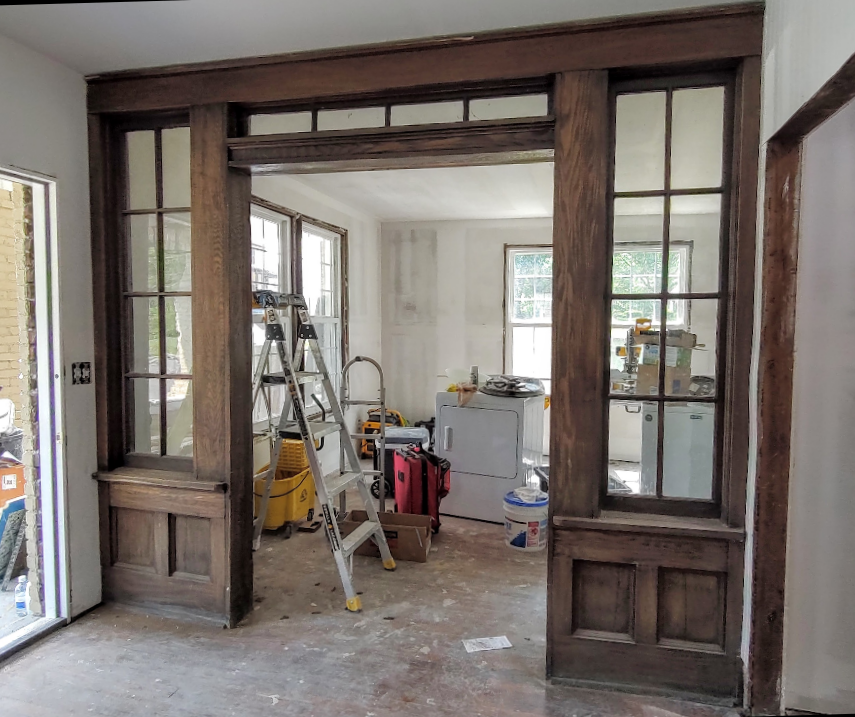Hiring the Right Contractor
for Old Houses
Preservation Experts in our region
J. Ross Painting and Drywall
915 Millennium Court, Blountville, TN
Restoring or renovating a historic home isn’t the same as remodeling a modern property. Old houses were built with materials and methods no longer common today, which means you need a contractor who understands not just construction—but preservation. Hiring the right professional will protect your investment, preserve the home’s history, and save you costly mistakes.
Why You Need a Specialist for Historic Homes
Most general contractors are trained for modern construction. While they may be excellent at new builds, they can misjudge the unique quirks of an old house. Common issues include:
Mismatched Materials: Using Portland cement instead of lime mortar on historic brick can trap moisture and destroy masonry.
Over-Modernization: Replacing original wood windows with vinyl instead of repairing sash and glazing reduces both value and authenticity.
Ignoring Structural History: Balloon framing, hand-hewn beams, or stone foundations behave differently than modern framing systems.
Hidden Hazards: Lead paint, asbestos, or knob-and-tube wiring require careful handling to meet both code and safety standards.
The right contractor knows how to work with these features instead of against them.
Qualities to Look For in a Historic Home Contractor
When you start interviewing, here are the key qualities that matter most:
1. Proven Experience With Old Houses
Ask for a portfolio of past historic projects, not just remodels of newer homes.
References from past clients who restored old homes are gold.
2. Knowledge of Traditional Building Methods
Lime plaster, slate roofing, wood siding, stone masonry, and hand-fitted joinery should be familiar territory.
3. Respect for Preservation Standards
If your home is listed in a historic district or eligible for tax credits, the contractor should understand the Secretary of the Interior’s Standards for rehabilitation.
4. Communication & Documentation
Old house projects often uncover surprises. You need someone who will clearly explain change orders, budget impacts, and repair options.
5. Comfort With Oversight
Renovations using historic tax credits or construction loans often require inspections and draw schedules. The contractor must be organized and willing to provide documentation.
Questions to Ask Before You Hire
How many houses over 75 years old have you worked on?
Do you carry references specific to historic preservation projects?
How do you approach repairing original windows, siding, or plaster?
Are you familiar with lead-safe practices and historic material sourcing?
Do you work with consultants (structural engineers, preservation architects) when needed?
Can you provide detailed estimates broken down by trade?
Red Flags to Watch Out For
“We’ll just replace it” attitude: A preservation-minded contractor will repair or replicate appropriately, not immediately replace historic elements.
Unclear pricing: Vague lump sums without detail often lead to budget overruns.
Lack of licensing/insurance: Especially risky when handling hazardous materials.
Unwilling to pull permits: A sign they may cut corners.
Balancing Cost and Quality
It’s natural to compare bids, but the cheapest estimate is rarely the best when it comes to old houses. A contractor who understands preservation may cost more upfront but can save you from expensive mistakes down the road. Look at bids side by side, paying attention to scope of work, materials, and allowances—not just the bottom line.
Where to Find the Right Contractor
State Historic Preservation Office (SHPO): Often keeps lists of preservation-minded contractors.
Local Preservation Groups: Nonprofits and historical societies can recommend contractors with proven track records.
Architect Referrals: Preservation architects typically have a trusted circle of contractors.
Word of Mouth: Ask other old-house owners in your community about their experiences.
Final Thoughts
Hiring the right contractor for an old house means hiring someone who values craftsmanship and history as much as you do. The right professional won’t just restore a structure—they’ll help you carry its story into the next generation.
If you’re considering buying or restoring a historic home in Southwest Virginia or Northeast Tennessee, I can connect you with trusted contractors and consultants who specialize in old houses.
